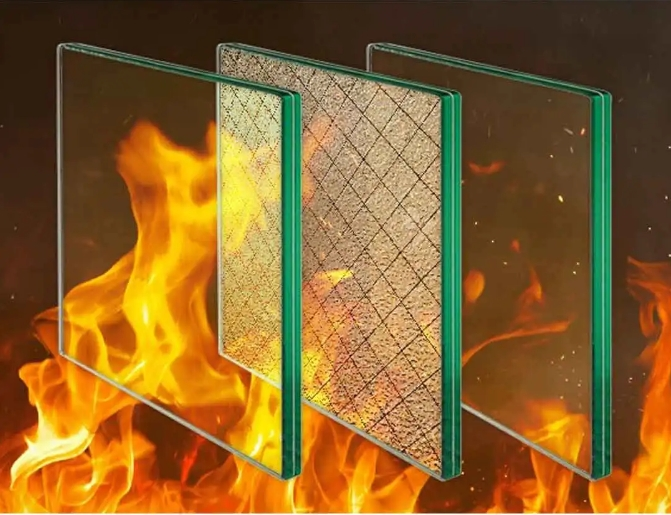
Glass is one of the most versatile materials known to humankind, garnishing everything from our everyday windows to sophisticated scientific equipment. While standard glass serves many purposes adequately, sometimes unique demands require specialized solutions. That's where special glass comes in. Companies like Evergreenglass are pioneering advanced methodologies to produce various special glass types, tailored to meet exacting standards in diverse industries. This article delves into the composition, differences, types, and uses of special glass.

Special glass is engineered to meet specific performance criteria, and its unique properties often stem from its composition. While standard glass primarily consists of silica (SiO2), soda (Na2O), and lime (CaO), special glass includes additional elements or different ratios to enhance its characteristics.
For instance, borosilicate glass, a common special glass, incorporates boron trioxide (B2O3) to improve thermal and chemical resistance. Aluminosilicate glass, another special glass type, includes alumina (Al2O3), making it highly resistant to scratches and mechanical stress. Companies like Evergreenglass take these compositions and fine-tune them to create products that meet specialized needs, ensuring exceptional performance in demanding environments.
At a glance, special glass like non reflective glass coating and normal glass may appear identical, but they vary significantly in their physical and chemical properties.
Normal Glass
- Composition: Primarily silica, soda, and lime.
- Properties: Relatively low resilience to temperature changes and mechanical stress. Prone to scratching and less chemically resistant.
- Applications: Windows, bottles, basic laboratory glassware.
Special Glass
- Composition: Enhanced with additional elements like boron, alumina, or rare earth metals.
- Properties: Exceptional thermal stability, higher mechanical strength, enhanced scratch and chemical resistance.
- Applications: Aerospace engineering, medical devices, high-precision optical instruments.
The meticulous composition of special glass types enables functionalities that are impossible or inefficient to achieve with standard glass, making them indispensable for specialized applications.
The realm of special glass is vast, and each type serves unique purposes. Here is a deeper look into some popular special glass types:
Borosilicate Glass
Known for its exceptional thermal and chemical resistance, borosilicate glass is extensively used in laboratory glassware, cookware, and lighting. Brands like Evergreenglass have perfected the production of this type, ensuring it meets stringent quality standards.
Aluminosilicate Glass
Highly resistant to physical and mechanical stress, this glass type is often used in smartphones, tablets, and other personal electronics. It can withstand scratches and impacts that would typically shatter normal glass.
Optical Glass
Produced with high levels of purity and precision, optical glass is critical for lenses, prisms, and other components in cameras, microscopes, and telescopes. This special glass type ensures minimal light distortion, making it perfect for high-precision instruments.
Safety Glass
This category includes tempered and laminated glass, which are designed to shatter into small, less harmful pieces or remain intact upon breaking, respectively. They are extensively used in automotive windows, building facades, and public transportation.
Specialty Coated Glass
Incorporated with various coatings, this glass can reflect, absorb, or transmit specific wavelengths of light. Applications include solar panels, low-emissivity windows, and mirrors for astronomical telescopes.
Special glass types find utility across a broad spectrum of industries, owing to their unique properties. Here are some notable applications:
Aerospace
Borosilicate and aluminosilicate glasses are used in the aerospace sector for their ability to withstand extreme temperatures and mechanical stress, making them suitable for windows, instrument covers, and various onboard electronics.
Medical and Laboratory Equipment
Borosilicate glass's chemical resistance makes it ideal for lab equipment, while its thermal resilience is crucial for medical devices like incubators and sterilization chambers. Optical glass also plays a role in diagnostic tools and imaging equipment.
Electronics and Consumer Goods
Aluminosilicate glass is ubiquitous in modern electronics, providing a durable, scratch-resistant surface for smartphones, tablets, and wearables. Optical glass is integral to high-resolution cameras and other imaging devices.
Construction and Architecture
Safety glass ensures durability and safety in buildings, facades, and interior design. Specialty coated glass helps improve energy efficiency by controlling heat gain and loss through windows.
Renewable Energy
Specialty coated glass is also critical for solar panels, allowing for maximum light transmission while protecting the cells from elements, thus enhancing efficiency and longevity.
Special glass is a testament to human ingenuity, pushing the boundaries of what conventional glass can achieve. From enhanced durability to extreme thermal and chemical resistance, special glass types engineered by special glass factory like Evergreenglass are indispensable in today's technologically advanced world. Whether it's for groundbreaking aerospace applications or everyday consumer electronics, special glass continues to play a crucial role in multiple facets of modern life.